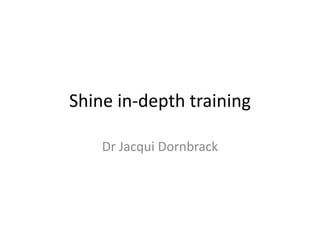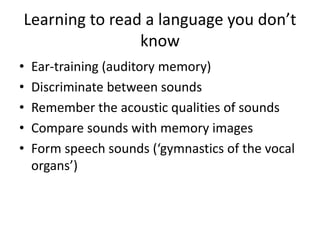The document discusses teaching methods for reading and writing in grades 2-3. It focuses on four aspects: the complexity of reading, teaching phonics, teaching reading, and teaching writing. Specific topics covered include how the brain learns to read, developing reading skills from an early age, phonics instruction, using visuals to support reading, developing automaticity, paired reading activities, comprehension strategies, writing paragraphs, using punctuation, and assessing writing progress. The document provides detailed explanations and examples to support teaching reading and writing at a foundational level.
























